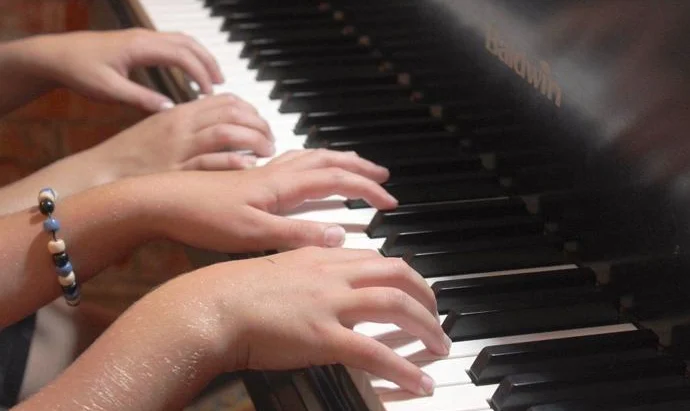Learning to play the piano is an exciting journey that combines creativity, discipline, and personal growth. For beginners, balancing the enthusiasm for playing beautiful melodies with the demands of mastering the fundamentals can be challenging. Patience is critical in this process, helping learners overcome obstacles, develop skills, and build confidence over time. Without patience, frustration can easily overshadow progress, leading to discouragement. We will explore the importance of patience in piano lessons for beginners los angeles and how it impacts the learning experience. By embracing patience, beginners can enjoy steady improvement and a more fulfilling musical journey.
Contents
The Role of Patience in Building Fundamentals
Patience is essential for beginners to master the basics of piano playing, such as proper posture, hand positioning, and reading sheet music. These foundational elements require consistent effort and repetition to internalize. For example, learning to read music involves memorizing notes, understanding timing, and recognizing patterns—skills that take weeks or even months to develop. Beginners often feel tempted to skip these steps and move to more exciting pieces, but doing so can hinder long-term progress. Patience ensures that learners stay committed to building a strong foundation, which makes advanced techniques more manageable later. Additionally, beginners may struggle with physical aspects, like finger strength and coordination, which require gradual improvement through practice. By remaining patient, learners give their minds and bodies the time needed to adapt, fostering a solid skill set that supports their growth as pianists.
Overcoming Frustration and Plateaus
Piano learners often encounter moments of frustration when progress seems slow or when they struggle with difficult pieces. These periods, known as plateaus, are a natural learning process. Patience is crucial for navigating these challenges without giving up. Plateaus often indicate that the brain consolidates new information or skills, even if progress isn’t immediately visible. Learners eventually break through these barriers and experience significant improvement by continuing to practice and trust the process. Patience also helps beginners maintain a positive mindset during these times. Instead of viewing challenges as failures, they can see them as opportunities to learn and grow. This perspective reduces stress and encourages perseverance. Cultivating patience teaches students to embrace the ups and downs of their journey, turning setbacks into valuable lessons that strengthen their resolve and commitment to piano learning.
Fostering a Lifelong Love for Music
Patience nurtures a deeper appreciation for music and the learning process itself. Beginners who approach piano lessons with patience are more likely to enjoy each step of their journey, from mastering simple scales to playing complex compositions. This enjoyment creates a sense of fulfillment and motivates learners to continue practicing. Rushing through lessons or staying focused on quick results can diminish the joy of playing and lead to burnout. Patience allows learners to focus on the beauty of the music they create, no matter how simple or advanced. It also encourages them to explore their unique musical style and interests, fostering creativity and self-expression. By practicing patience, beginners develop a lifelong connection to music beyond technical proficiency, enriching their personal and emotional lives. This connection transforms piano lessons from a temporary activity into a meaningful and enduring passion.
The Impact of Patience on Performance Confidence
Confidence is a significant factor in a pianist’s ability to perform, and patience plays a key role in building it. Beginners often feel nervous about playing in front of others, whether it’s their teacher, family, or an audience. Patience helps them practice consistently and thoroughly, ensuring they are well-prepared for performances. This preparation builds confidence, as learners know they’ve dedicated time and effort to their craft. Moreover, patience allows beginners to accept mistakes as part of learning. Instead of fearing errors, they learn to view them as opportunities for growth, which reduces anxiety during performances. With patience, learners also develop resilience, allowing them to recover from mistakes gracefully and continue playing with poise. Over time, this confidence translates into a more enjoyable and rewarding performance experience, empowering beginners to share their music with others and celebrate their progress.
Patience is a cornerstone of success in piano lessons, shaping every aspect of their learning journey. It supports the development of fundamental skills, helps overcome challenges, and fosters a deep love for music. By embracing patience, learners can navigate the ups and downs of their piano journey with perseverance and positivity. This mindset enhances their musical abilities and builds confidence and resilience, enriching their overall experience. As beginners cultivate patience, they unlock the joy of playing the piano and create a lasting connection to music that brings fulfillment and inspiration for years.

Sarah Wilson, an accomplished writer and seasoned blogger, weaves compelling narratives that transport readers to new and uncharted worlds. With a talent for vivid storytelling and thoughtful insight, her work leaves a lasting mark, enchanting both the imagination and intellect.
